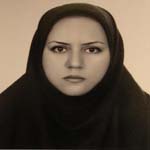Investigating the role of animals in the common proverbs of Rostam city
Author(s):
Article Type:
Research/Original Article (دارای رتبه معتبر)
Abstract:
The folk literature of every nation and region, including poetry and prose, and oral literature, reflects and expresses thought, belief, customs, behavior, cultural and social relations, and the way of life. Among the proverbs of Rostam city, animals play a significant role. According to the studies, one-seventh of the proverbs are dedicated to animals. These animals, divided into domestic and wild, are animals closely related to the lives of the people of this land. Looking at the animal community in these parables is in fact the sociology of humans. Some of the animal's behavior, movements, and temperament are reflected in humans, which provides a parable based on allegory, metaphor, or irony. The animals with which man is most associated in daily life have more proverbs in his dignity and the reflection of his behavior is more dramatic. The animal that offers the most services is a human with a positive role, and the one that threatens life is a person with a negative role. A description of an animal in a proverb is in fact an expression of the characteristic of the person who is characterized by it. All this, like the dignity of animals, with their application in the culture of the people of this city, is nothing but education, growth and training, which emphasizes the important role of humanization to create a healthy society.
Keywords:
Language:
Persian
Published:
Journal of Iranian Regional Languages and Literature, Volume:12 Issue: 3, 2022
Pages:
111 to 137
https://magiran.com/p2551610
سامانه نویسندگان
مقالات دیگری از این نویسنده (گان)
-
The internal transformation of two romantic concepts (naturalism and personal feelings) within the scope of politics in the works of Forough Farokhzad and Simin Behbahani
Farzad Rostami*, Mahboobeh Khorasani
Journal of Literary Research, -
Investigating the social anomalies of Jalayrian era in Salman Savoji and Farhadnameh of Aref Ardebili
Morteza Rashidi *, Zohre Ansari, Mahboube Khorasani
Iranian Journal of Political Sociology,



